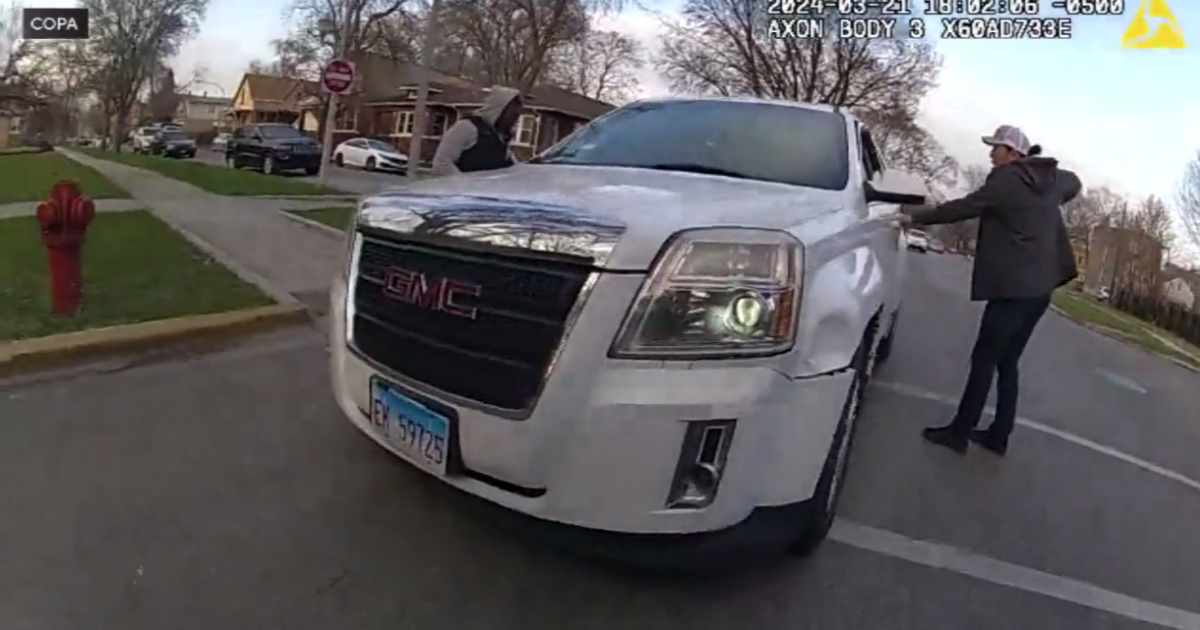Smoke Detector Knowledge That May Save Your Life
CHICAGO (CBS 2) - You think your smoke detector is going to protect your family, but that might depend on the type of fire that breaks out. CBS 2's Mary Kay Kleist reports not all smoke detectors are alike and the type of smoke detector could save your life.
Ann Heming is a busy mother of five and tries to do everything she can to protect her family, especially when it comes to smoke detectors. "I have one son that is especially conscientious. He definitely changes the batteries twice a year," Heming said.
Heming has three smoke detectors, one on each floor, just like the fire department recommends. Hers are called ionization detectors which make up 90% of the common household detectors. Another type is photo electric and you can also buy a combination of the two. CBS 2 wanted to test if all three types work the same way.
With the help of the Naperville Fire Department, CBS 2 ran several tests with all 3 types of smoke detectors. Some new and some collected from homeowners.
First, they started a flaming fire with little smoke, similar to a candle igniting a towel or furniture. All types of alarms go off within seconds of each other.
Next we set newspaper in a trash can on fire. Floating particles are visible in the air. Again, all alarms go off within seconds of each other.
But our last test had a very different result after we simulated a smoldering fire, like a cigarette falling into a couch. 58 seconds into the test and the smoke was building. One by one we can't stand the smoke and detector bailed out to the balcony.
Fire Chief of the Naperville Fire Department Mark J. Puknaitis said, "Obviously there was a tremendous amount of smoke, most of which was toxic."
3 minutes and 45 seconds after we set the fire, the first alarm sounds. It's the "photo electric" model.
At 5 minutes and 28 seconds, we finally hear the next alarm - an ionization model but not until the couch has burst into flames.
CBS 2 asked the Chief what he was most surprised about in which he replied, "The most surprising thing I found was in our final test. The photo electric detector went off a minute at least before any others."
It was actually a total of 1 minute and 43 seconds before one of the ionization detectors sounded. That time could be life saving since a fire could spread very quick in that amount of time.
Heming had no idea that while ionization detectors are very effective for flaming fires, they are slower than photo electric models in picking up smokey, smoldering fires.
"I couldn't believe all that smoke in the room, everybody had to get out and just the one out of the 5 of them responding until there was actual flame and heat," Heming said.
Remember, smoke detectors of any kind save lives. Ionization detectors are proven effective in flaming fires. For the greatest protection, the US Fire Safety Administration and Underwriters Labs recommend that every home have both photo electric and ionization detectors, or you can get a combination unit. It's also recommended that, besides detectors, every family should have an escape plan.
The Importance of Smoke Alarms for Your Family - Click Here
Stopping a Fire Before it Starts: 5 Things You Can Do Today - Click Here



